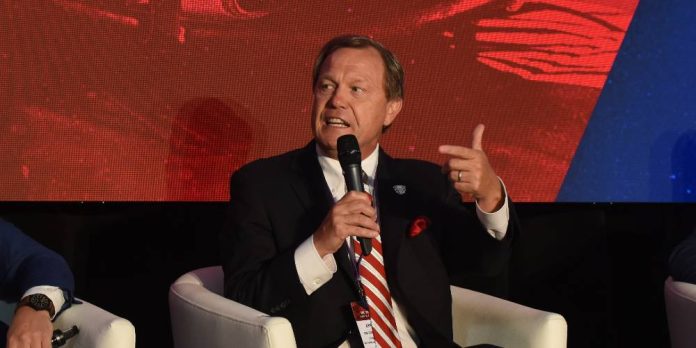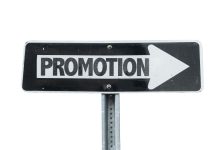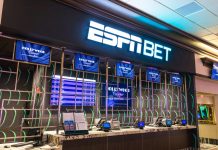Sports betting in the United States holds the strange distinction of being a form of gambling which, according to some research, is not perceived as gambling.
However, when it comes to betting on college sports, there is plenty of discomfort across the nation. States write in-state college betting bans into sports betting legislation or limit the scope of college sports betting to exclude prop bets on individual players.
At this month’s SBC Summit North America, a group convened for the panel “The roadmap towards creating a better collegiate sports betting experience” to discuss how to best proceed when it comes to betting on amateur sporting events.
Director of SEM Global Patrick Canavan moderated the panel, which also included:
- Mid-American Conference Commissioner John Steinbrecher
- Sun Belt Conference Associate Commissioner/Gambling and Compliance Maura Smith
- VP of Strategic Sports Partnerships for Genius Sports Oliver Wells
- COO of US Integrity Scott Sadin
The goal of the panel discussion was a path forward, but the group also took time to revisit the past and current state of betting on college sports and how far things have come since the Professional and Amateur Sports Protection Act (PASPA) was overturned in 2018.
College sports betting: The way it was
The PASPA decision led many pro leagues and colleges to panic. After all, the NCAA was a listed party in the Supreme Court case. Steinbrecher was happy to go against the grain though.
“There were many in the collegiate world who weren’t real happy with that decision. I was on the other side of that,” he said. “I thought this is an opportunity to, ‘let’s get sports betting in the collegiate space out of the corners out of the dark corners. We know what’s going on on our campuses. We know what’s going on in communities. Let’s get it out. Let’s regulate it with spring sunshine and transparency to it.’ And that’s we’re in the early stages of that evolution. And I think it’s the right thing.”
Once the decision was made, colleges, conferences, and the NCAA had tremendous work to do to prepare for the new wave of sports betting. Game integrity drove most of the conversations, but inevitably discussions came down to how college sports could benefit from this new industry.
“We had had some pre-existing relationships in the collegiate and professional sports space. So we really targeted our services initially to that stakeholder group,” Sadin explained. “Initially, I think the thing that we all identified was the lack of education, right? There just wasn’t a ton of knowledge and domain expertise within or around the collegiate space simply because it had been a topic that had been shunned for many years. And so I think what we really focus on initially as well as delivering our dashboard and our alerting was implementing policy, incorporating procedure, putting education at the forefront for not just student-athletes, but are for athletic administrators as well.”
That part of the process met relatively little resistance. Once people started suggesting that data deals could be a way to profit from this business in an ethical way, the walls went up.
“I was talking to the group earlier when we had we were engaged to do policy procedure education, integrity, monitoring very early on for some of the Power Five conferences. At the time, we were saying, you know, there’s an opportunity to potentially do a data licensing deal,” Sadin recalled.
“Data collectors are already here collecting your data and distributing it. There’s an opportunity to monetize this. And I basically had tomatoes thrown at me and was walked out of the room drenched in sweat, was bright red, was thrown out. Thought I had ruined many of the relationships I’d worked so hard to develop. Fast forward, three, four years now and some of the discussions with conference ADs and with CEOs or presidents, the tenor the tone has changed dramatically.”
College sports betting: The way it is
Sadin suggested the real shift in the college sports world around betting started with COVID-19. Groups that were staunchly opposed to betting were put in a situation where every revenue source merited at least a conversation.
“[Entities] are now saying COVID, NIL, realignment, unionization, all the other issues that we’re dealing with…[betting] is a category that perhaps is accretive to our business if done properly. And so, if we can unlock this category in a thoughtful and deliberate and pragmatic way, then perhaps, you know, it’s an opportunity for us as opposed to something we should neglect and ignore,” he added.
For conferences though, it wasn’t just about the money. There were NCAA considerations as well, including some confusion over whether or not conferences owned their own data and could sell those data feeds to sports betting groups.
Steinbrecher and the MAC were one of the first conferences to sign a data deal with Genius Sports back in March. It took some internal reassurances before signing on the dotted line.
“We don’t think there’s been a change in NCAA bylaws. We think there’s been a clarification. We went into this, thinking that our ability to sell our data rights or statistics was permissible under NCAA bylaw 10.3. There was some sort of administrative interp floating out there that supposedly prohibited that,” Steinbrecher explained. “And so we pursued that and asked for clarification and ultimately got that clarification. And we got it probably quicker than most people thought we would. But, again, we thought the only thing that’s changed is we’ve taken an asset class and now we’re going to monetize it.”
Genius Sports was happy to be the buyer in this situation. Even though the MAC is not a Power Five conference, it has several unique selling points Wells was excited to put to use. For example, he cited the states represented in the conference, which includes the massive sports betting markets of Michigan and New York as well as Ohio, which will be a large market, particularly in the college, space, when it launches in early 2023.
“We also think about the innovation that Commissioner Steinbrecher, put in place a long time ago around midweek MACtion,” Wells said. These games are played Tuesday or Wednesday and are often the only primetime action on the calendar. “So if you’re looking for content, and you’re looking for sponsorable assets, it is very uniquely positioned,” he added.
For Smith and the Sun Belt, the deal provided the cover they desperately wanted to pursue similar partnerships.
“I think we were excited for a fellow conference to enter into that agreement. We had some information that it was going to be happening and didn’t want to be too far behind to be honest with you,” Smith said.
Even with some clarification around the bylaws, Smith made a point to note that the issue is so much more complex than bylaw 10.3.
“I think we were less concerned with that NCAA bylaw, and more concerned with our conference bylaws to understand exactly what we owned, exactly what our institutions had the autonomy to go out and bring to market to really understand, again, if we wanted to enter into a data sponsorship, hit all the different buckets then what could the institutions also do because, as conferences, our main role is to support the institutions in our conference. And so how could we kind of engage in a deal that still allows them the autonomy to potentially have those corporate sponsorships as well?”
What data belongs to the NCAA, the conference, and even the individual schools will be a point of litigation in the months, if not years to come.
College sports betting: The way it could be
The MAC deal is just the start of what some on the stage thought could be a gold rush.
“I think you’re gonna see a waterfall,” Wells said. “Learfield [the biggest NCAA marketing agency] has still yet to make any announcements of deals that they’ve brokered, or are brokering, and they’re obviously an enormous player in the [multimedia rights] space. And so I do think there’s going to be a significant waterfall and I know that there’s a lot of collegiate properties out there that are taking a similar approach to what the conferences have been saying up here, which is we want to start exploring the category and seeing if there is, you know, a lucrative and creative impact economically for us that that could really kind of bolster some of the things that we want to do elsewhere.”
Sadin thinks these sorts of deals are only one part of the marketplace:
“There’s the economics on the commercial side, where we’re gonna start seeing a lot of these partnerships directly with schools and sportsbooks. I think the other side is the sort of compliance side and the education which is what is happening and what is being wrapped around those partnerships to ensure student-athletes, athletic administration, families, and friends of student-athletes and athletic administration, trainers, and coaches are all up to speed on what they can and can’t do and are delivered nuanced case studies of what has already transpired in the regulated landscape in the collegiate space over the last four years.”
Data rights may be the financial driver in the space, but all parties on the panel noted the need for integrity, which includes making sure student-athletes know how to protect both themselves and the game.
“Our concern is really the student-athletes, the coaches the staff, what other fans or players would be asking the athletes for inside information, those types of things. And so building and creating those robust procedures and education was really important,” Smith added.
Steinbrecher summed up the attitude around the market well when he noted that the future hinges completely upon the now. If things aren’t done right, carefully, and with integrity, that is all it could take to go off the rails.
“We’re all having to balance this. We still have this stigma with wagering and sports, particularly wagering and college sports. And it’s gonna take some time for there to continue to be a comfort level there. And part of it will be can we continue to manage this operation without having a series of incidents?”
That will take the cooperation of leagues, teams, data services, and operators, but, for now, at least, it seems everyone is keen to work together to grow college sports betting in a way that is beneficial to all.














